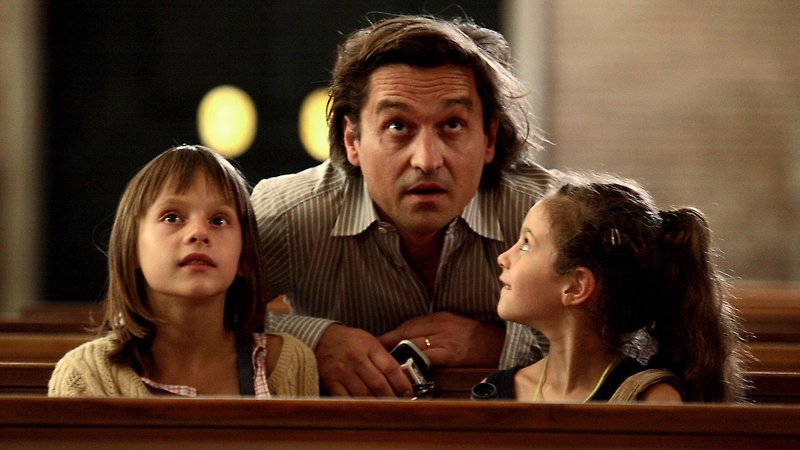This moving family drama from a young woman writer/director takes shape around the absence of a charismatic, workaholic film producer husband and father. “Vividly authentic… an extraordinarily humanistic drama.” — LA Times

A triumph of simplicity and understatement... and a cautionary tale for anyone who fancies being a producer.
Screened as part of NZIFF 2010
Father of My Children 2009
Le père de mes enfants
It’s a rare reviewer anywhere who has not been caught up by this persuasively acted portrait of a charismatic, workaholic, art-house movie producer, and the tragic consequences of his business failure for his wife and children. What’s remarkable, and very much to the credit of director Mia Hansen-Løve’s non-judgemental, closely observant style, is how differently people have related to her absorbing and emotional film. Many male reviewers have read it as a corrective view of the most thankless, vilified role in the movie industry. Kate Muir in The Times, quoted below, saw it otherwise. Maybe Kenneth Turan best summed up Hansen-Løve’s achievement in his LA Times review, “This film places us in the company of characters who are so finely calibrated and accurately portrayed that we forget they are not truly real.” — BG
“There is a species, mostly male, that the French refer to as les intellos: popular intellectuals worshipped for their charm and genius. So when the 29-year-old director Mia Hansen-Løve decided to make Father of My Children… the surprise came when the hagiography turned into a quiet evisceration. The film is a deep-mining of the Paris bourgeoisie: their country houses, their books, their grammatical correctness. Hansen-Løve wrote the script after the suicide of a friend and film producer [Humbert Balsan], and it shows what happens when men favour art over life. The depiction of the grieving producer’s wife and children is agonising in its truth. Louis-Do de Lencquesaing plays the father, and his real-life daughter Alice makes an intelligent, disaffected teenager.” — Kate Muir, The Times